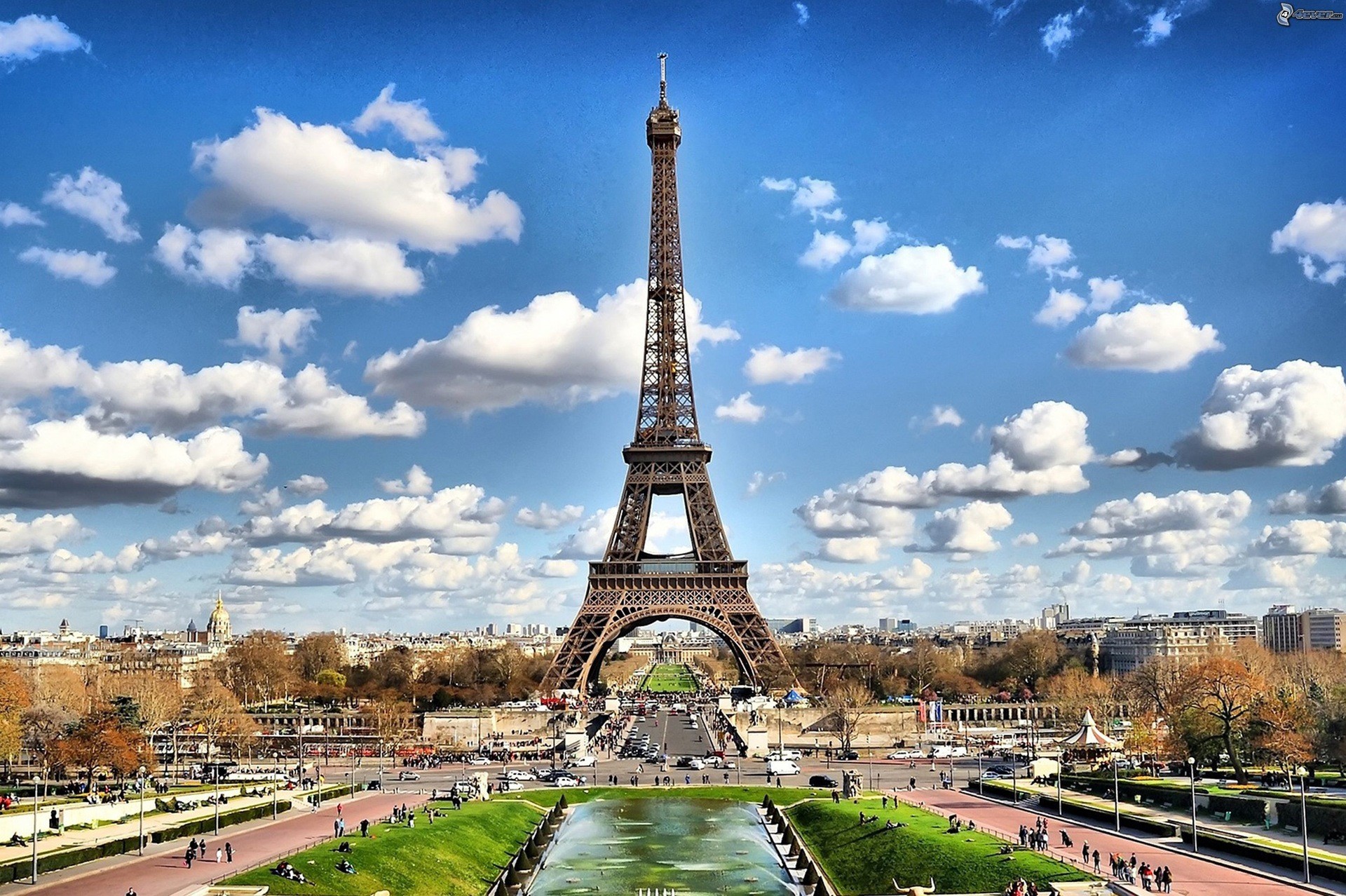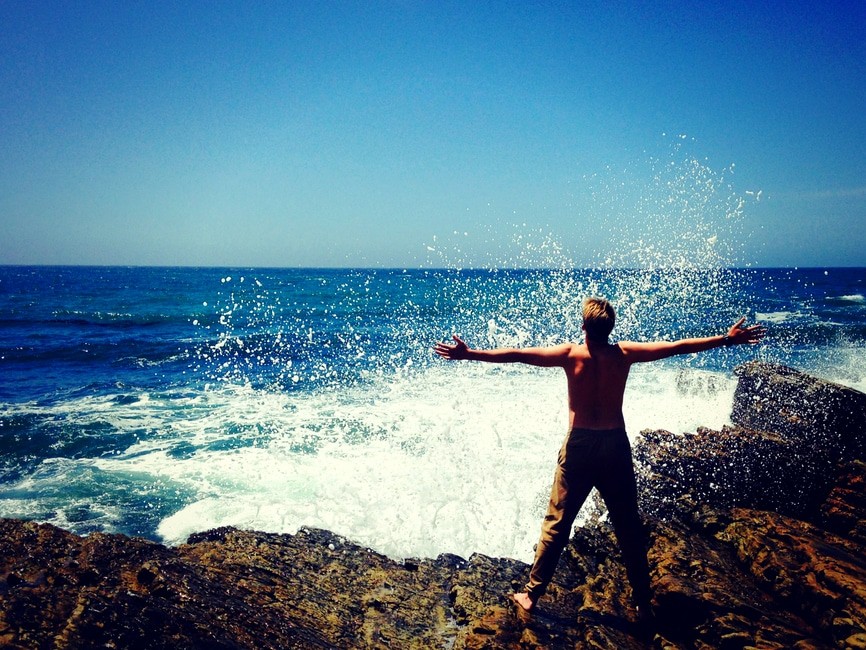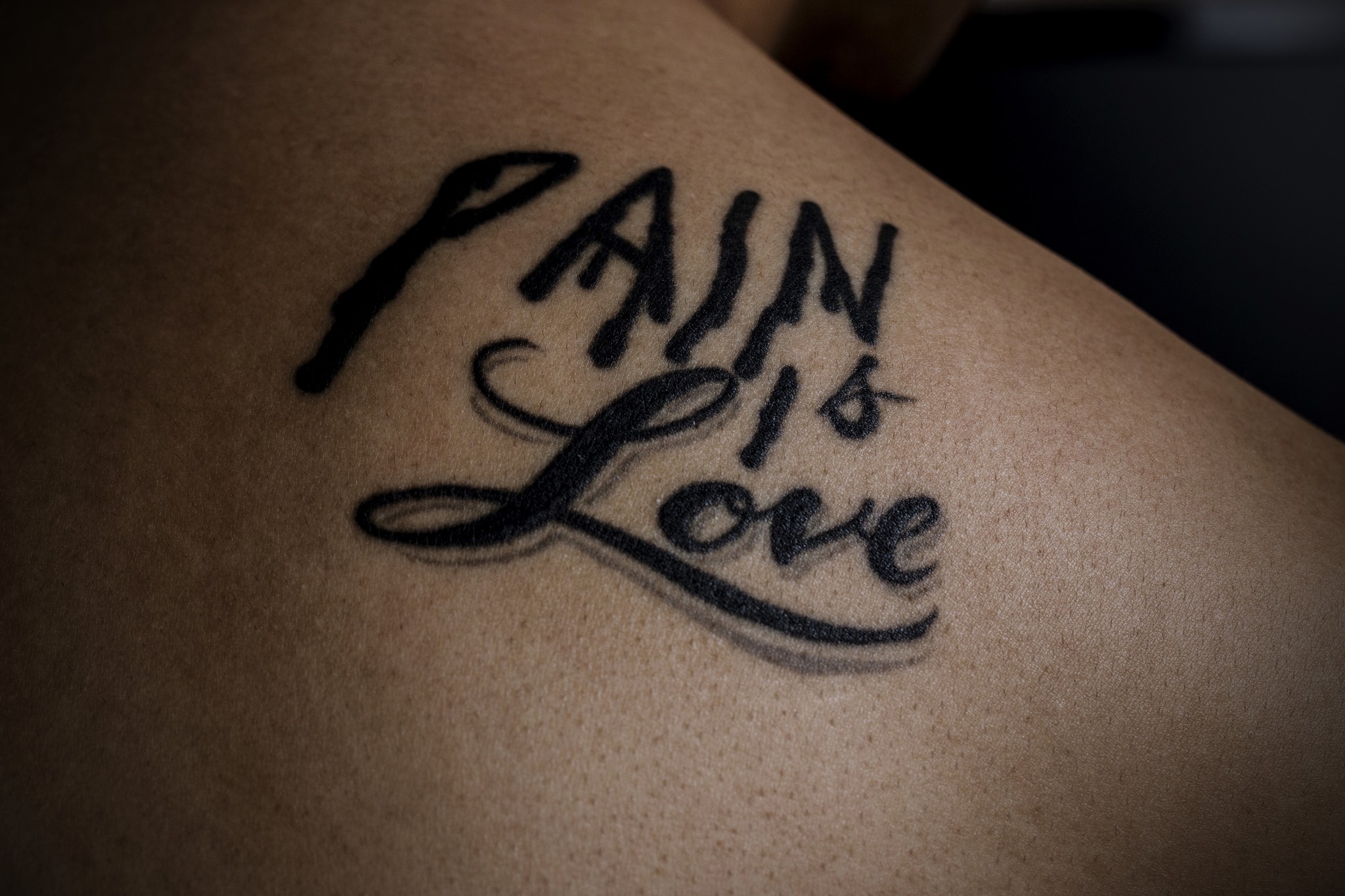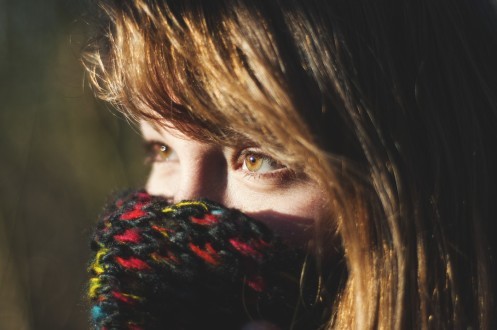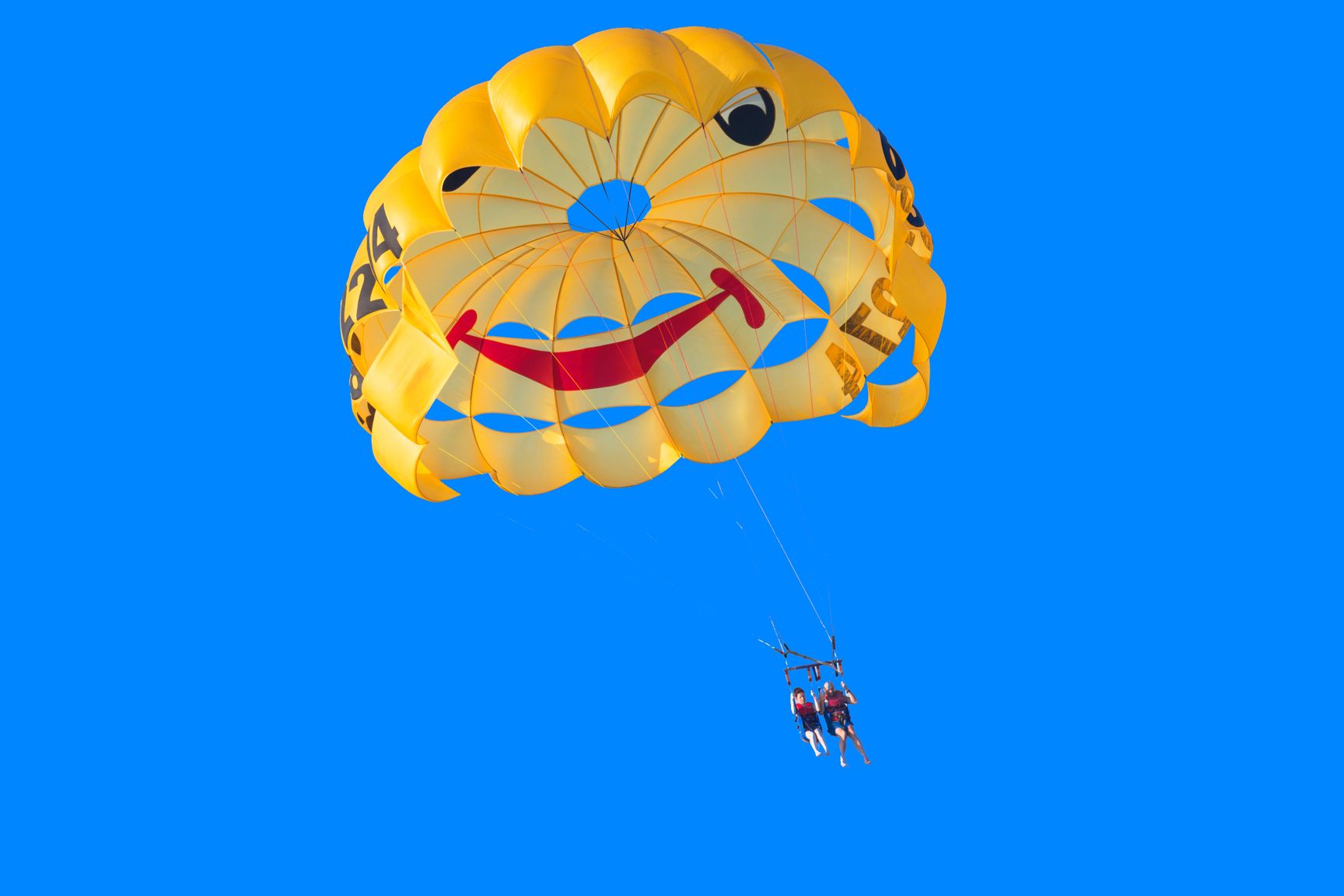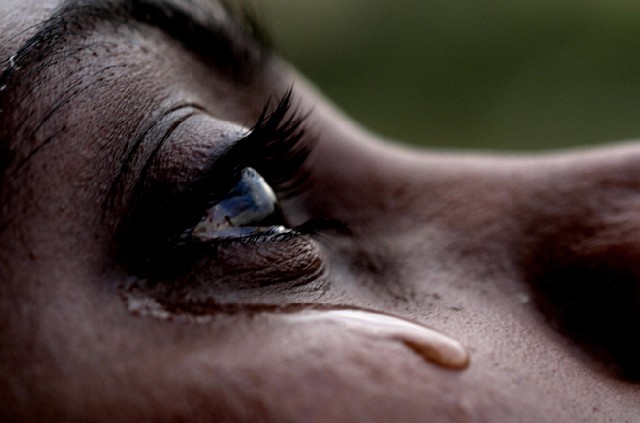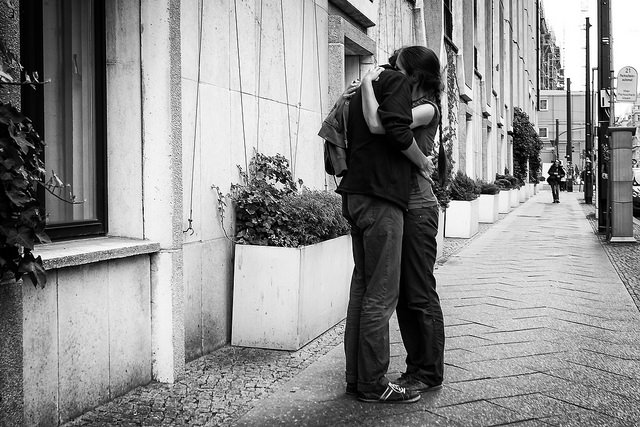
“You gain strength, courage and confidence by every experience in which you really stop to look fear in the face. You are able to say to yourself, ‘I have lived through this horror. I can take the next thing that comes along.’ You must do the thing you think you cannot do.”~ Eleanor Roosevelt
Last week, I awoke with a strange feeling. My heart was skipping beats. My stomach churned. I didn’t want to leave the comfort of my bed.
I finally forced myself out of bed and moved to the quiet area where I meditate. I felt momentarily relieved, but couldn’t isolate the source of my anxiety.
I had spent the few weeks prior celebrating my 18-year-old daughter’s graduation. (Or was it consoling myself for her impending leave of absence?) I also had many events planned that took me out of my usual comfort zone—namely launching a new initiative The Authenticity Project and speaking at TEDxAccra for the second time.
My emotional state was not ideal. I was full of fears about how I would handle the imminent empty nest syndrome and worries about my events going smoothly. Due to family and social obligations, I couldn’t embrace the reading and writing practices I had developed to cope with any emotional challenges, which only amplified my fears. And to top it all off, I would need to travel three times within the next few months, which always causes me anxiety.
The launch passed successfully, my talk went better than I had expected, and my daughter was ecstatic throughout her graduation week. I felt immense relief and joy every time I ticked off an event.
However, something still lurked in my subconscious after the anxiety-inducing events had passed. The butterflies I had felt earlier still roamed inside me, paralysing my actions, affecting my productivity, and diminishing my ability to live in the present.
I felt restless, and over the days that followed I would fall into a slight funk.
Why had those events caused me so much anxiety? Why, even after they had passed, was I still anxious? After so much self-work, why did I still have to go through these dark episodes?
We human beings have a primitive, built-in system that protects us from perceived threat or harm, be it physical (an impending saber-toothed tiger waiting to attack) or emotional (the empty nest syndrome I was facing). It’s called the fight or flight response and is activated by an area of our brain known as the hypothalamus, which releases stress hormones such as adrenaline and cortisol.
These stress hormones affect us physiologically: our breathing increases, our heart rate goes up, and we feel a nervous tension. We become more aware of our surroundings, our pupils dilate, our senses get sharper, and we are in fight or flight mode.
In survival mode, we default to our primordial, emotional mind and bypass our rational mind, which holds all our positive thoughts, newly formed beliefs, and good habits. Overwhelmed, we lose the ability to relax. When we spend a lot of our lives in this reactive mode, we bury many of our dark emotions—childhood traumas, insecurities around what other people think, fear of not being enough, fear of failure—deep into an abyss where it’s next to impossible to shine our awareness on them.
After all my anxiety-filled commitments passed, I found myself stuck in fight or flight mode.
Though it’s true that anxiety is a negative state, it’s not all bad. After all, it can lead us out of survival mode, pushing us to embrace important personal growth concepts and face the emotional issues that we’ve buried.
Here are three of the most meaningful ways my anxieties have helped me grow:
Awareness of our fears
“Everything you want is on the opposite side of fear.” ~ Jack Canfield
Most of us live within ourselves, absorbed by our thoughts and feelings. The only way out is to become aware of our polarising fears and then confront them head on.
We are not our thoughts. We are not our emotions. We are not our fears. We are rather the observer who sits behind the scenes and watches these thoughts and emotions appear randomly. As we grow to understand that we don’t have to identify with any negative emotions, we can start to catch ourselves in the midst of expressing them.
Fears are part of life. We must embrace these “fear” emotions by allowing them to surface. We need to sit with our negative feelings (no matter how painful they are) and feel the sadness when someone hurts us or life deals us a bad hand. We have to cry our eyes out sometimes.
We need to stop pushing these emotions away.
As I journaled and wrote out my feelings, my awareness grew: the things I was petrified of were less than the anxiety I was feeling.
I brought my fears out, put them on paper, mulled over them. Some were real—my daughter is leaving in a few months—that thought was painful and made me cry.
However, others lost their effect on me as soon as I became aware of them, such as my impending travel to Vermont for my MFA (leaving my home always invokes unwanted anxieties). Yet completing this program is a lifelong dream, so when I visualised how I would spend my ten days there, I felt much better.
Self-acceptance
“By letting it go it all gets done. The world is won by those who let it go. But when you try and try. The world is beyond the winning.” ~ Lao Tzu
Living fearlessly and authentically is about accepting ourselves fully. We are perfect and yet imperfect. We are pure love and yet riddled with fear and self-doubt.
Self-acceptance does not mean being lazy and settling for mediocre results. Rather, it means we give our best in whatever we pursue, but don’t get attached to the results of our efforts. We compare ourselves not to others, but to who we were before. We forsake this concept of perfection, as it doesn’t exist, and become vulnerable, putting ourselves out there and trusting that the universe will support our intentions.
I was anxious before my speaking gig because I wanted everything to go perfectly. I wanted to be the best speaker out there. I was attached to the results of my actions, when I needed to accept that I could only do my best and I couldn’t control any external outcome.
Just before I got on to speak, I asked myself a simple question: “Is there anything that I’m not accepting about myself that is increasing my anxiety?” The answer came to me in a flash: “Yes, I can be imperfect, and even if I forget a few words here and there, the point is to try my best.” That calmed me immediately, and I spoke confidently and well.
Embracing Uncertainty
“The quality of your life is in direct proportion to the amount of uncertainty you can comfortably deal with.” ~ Tony Robbins
Fear of uncertainty strikes deep into our psyche. Probably the biggest thief of happiness out there today is the weight of wanting things to happen in a certain way. We try to impose certainty on everything we do, and with that come many expectations.
These expectations paralyse us. They don’t allow us to be present or fully alive. We get stuck in regret about the past and fear about the future. Instead of fixating on certainty, we must embrace uncertainty.
On the day of the event for The Authenticity Project, I arrived early and was like a German Shepherd on the watch, prowling and barking out orders. I interfered with and interrupted the team responsible for setting up. I wanted everything in a certain way. Finally, my daughter whispered to me, “Dad, are you going to take a chill pill and enjoy the event?” I quickly snapped out of my “survival certainty mode” and relaxed so I could enjoy the night.
No matter how hard we try to control anxiety, it will still show up unannounced, ready to paralyse us. We can’t stop it, but we can manage it. Each person’s anxiety is unique, and as such we must each find our own way of managing it. But I believe we should all use our anxiety to question our psychology, rather than accepting it as the end result.
Let’s embrace our anxiety as a trigger—a tool to dig deep into our psyche and address the cause of our emotional pain.
